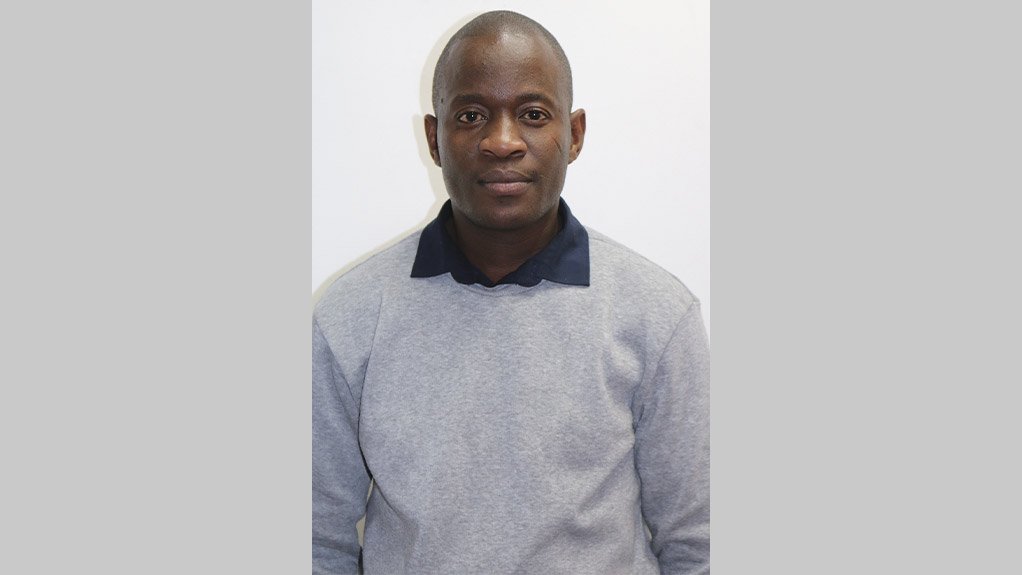The engineering, environmental, mining and industrial sectors in South Africa and broader Africa are undergoing a dynamic transformation with the emergence of a new generation of young professionals. It has become increasingly clear that bridging technology gaps, providing practical experience opportunities, and nurturing the enthusiasm and innovative spirit of these young individuals are vital for the continued growth and success of these sectors.
In line with this vision, the Council for Geoscience (CGS) proudly showcases the experiences and insights of two of its junior scientists who are actively driving this change within the organisation.
KOENA RAMASENYA
With a strong background in chemistry and environmental monitoring, thanks to his BTech in Chemistry, and Honours in Environmental Monitoring and Modeling, CGS environmental junior scientist Koena Ramasenya brings with him a wealth of knowledge as he explores sequence production of carbon dioxide (CO2) to mineral carbonisation as part of his MSc enrolment.
With this comprehensive academic foundation and eight years of experience, Ramasenya exemplifies the potential and capabilities of young professionals in the field.
However, fostering this same level of growth for other young professionals in the field, faces the challenges of slow growth, limited opportunities, and the lack of mentorship which can often demoralise young professionals.
Ramasenya, therefore, highlights the significance of upgrading qualifications, such as pursuing postgraduate studies like an MSc or PhD, to overcome these obstacles, emphasising the importance of “providing ample opportunities and mentorship for young talent to flourish within the system”.
Additionally, he notes that training programmes and cultivating essential skills are integral to ensuring the future participation of young professionals.
“Critical skills such as critical thinking, data analysis, problem-solving, and effective communication play pivotal roles in excelling in the geoscience field,” he says, acknowledging the significance of skills development and training programmes that empower young professionals to work independently, ethically and innovatively.
Organisations such as the CGS are implementing mentorship programmes and training opportunities to nurture young talent. Ramasenya emphasises the value of mentorship in fostering competence and confidence, recounting personal growth experiences under the guidance of senior colleagues. By shadowing executives and participating in technical workshops, he notes that young professionals gain valuable insights, refine their skills, and broaden their knowledge base.
The CGS has established bursary programmes and internal technical assistance programmes to support young professionals’ development. These initiatives provide financial assistance for education and rotational opportunities to shadow executives. Technical workshops also facilitate knowledge sharing between seniors and juniors, contributing to the overall growth and professional advancement of young scientists.
Opportunities like these have helped Ramasenya with continuous on-the-job training and enhanced his competence and confidence as he progresses his career, and he insists this should be the case for other young scientists.
Commenting on the multidisciplinary nature of geoscience, Ramasenya emphasises the importance of conducting both laboratory-based research and fieldwork to generate critical data necessary for the development process.
Considering that geoscience encompasses geochemistry, environmental geology, hydrology, engineering geology and economic geology, among others, Ramasenya encourages young scientists interested in the field to “conduct thorough research and explore the field’s various aspects to align their expectations with the reality of the profession”.
As the world moves towards sustainable development, young professionals are essential for ensuring that natural resources are managed and used responsibly.
“Precise research that addresses societal challenges in South Africa, Africa, and beyond is extremely important, and integrating young professionals into strategic positions and decision-making processes ensures the inclusion of modern developments and technological advancements, such as automation and predictive simulations, while balancing the critical role of human observations,” Ramasenya says.
He adds that embracing technology has become critical in the geoscience field, as it has been revolutionising processes and driving efficiency, particularly in assessing process efficiency within laboratory settings.
“By leveraging technology, the geoscience industry aims to reduce human error and enhance accuracy in data analysis and results interpretation,” he says, adding that the inclusion of technology, such as semi-automation of equipment, has proven instrumental in minimising human error.
While technology offers undeniable benefits in terms of efficiency and accuracy, he points out that it does have limitations. In laboratory research, meticulous observations play a crucial role in influencing the direction of investigations, and technology, on its own, may not capture these nuanced details, which can significantly impact research outcomes.
Ramasenya acknowledges that while semi-automation reduces certain types of errors, it can give rise to systematic errors. Thus, it “remains essential for geoscientists to account for these systematic errors by employing human oversight and ensuring accuracy in their research”.
Technology does, however, empower geoscientists to engage in simulations and predictive modeling, enabling them to anticipate and address potential challenges. For instance, in the field of seismology, the ability to monitor and predict seismic activities through technology allows scientists to issue early warnings and take necessary precautions, ultimately safeguarding human lives.
As the geoscience field evolves, em-
bracing technology becomes increasingly vital.
In summary, for those interested in pursuing the field, Ramasenya comments that “the journey of a young professional in geoscience requires perseverance, dedication and continuous learning”.
“By addressing challenges, providing opportunities and fostering a supportive environment, organisations like the CGS contribute to the growth and development of young talent. With the right guidance, skills and passion, young professionals can play a vital role in shaping the future of geoscience, contributing to sustainable development, and meeting the evolving needs of our society.”
ZAMAMPONDO SIBEWU
Dynamic and enthusiastic young minerals and energy scientist Zamampondo Sibewu secured a permanent junior scientist position at the CSG in 2018 after completing a two-year internship and working as a technical officer for another year.
With a Master’s in Geology and the valuable exposure gained during her internship, her role involves conducting geological field mapping, scientific research focused on minerals and energy, as well as writing scientific reports and presenting her work. From her experience, she highlights the lack of technology as a significant challenge for young professionals in the field.
“There is a need for smart gadgets and advanced tools that can streamline fieldwork, making it more efficient and timelier,” she comments.
The government has mandated the geoscientific field to explore the country’s mineral resources for economic recovery post-Covid, thus presenting numerous opportunities for young professionals to pursue careers in various disciplines such as geological mapping, economic geology, geochemistry, petrology and structural geology.
To foster growth and development among the youth, Sibewu emphasises the importance of bursaries, internships, graduate programmes and attending conferences.
“These opportunities provide exposure to specific disciplines, hands-on experience, and networking possibilities, enabling young professionals to expand their knowledge and gain valuable industry insights,” she says, highlighting that “the youth bring a fresh and innovative perspective to the industry, equipped with up-to-date knowledge of modern technology”.
She adds that their “enthusiasm, energy and open-mindedness” contribute to positive changes and the implementation of new ideas that can benefit the field of geoscience.
In terms of skills development, Sibewu emphasises the significance of gaining confidence to work independently and acquiring insights into the latest methods and techniques through training programmes and technical workshops.
The CGS’ 24-month internship programme, for example, exposes young professionals to various geoscience fields, helping them discover their passion and become marketable in the job market (this is the same internship that Ramasenya participated in).
Sibewu believes in the integration of technology, such as remote sensing and geophysics, which allows for efficient mapping of challenging terrains and the identification of subsurface geology and structures.
“The involvement of young professionals in strategic decision-making processes highlights the role of technology, such as drone surveys, in enabling non-scientists to contribute to geoscience data collection and analysis,” she advocates.
However, she acknowledges that there are some challenges associated with automation, such as the replacement of human capacity and the compatibility issues between different datasets. Despite these challenges, she is confident that “technology offers exciting opportunities to accomplish tasks faster and remotely, and to share data globally”.
To succeed in the geoscience field, Sibewu advises aspiring professionals to be passionate, curious and proactive.
“Thorough research on the chosen field of specialisation, seeking assistance when needed, continuous self-improvement through courses and workshops, and a love for the outdoors are crucial attributes for a fulfilling career in field-based geosciences,” she notes.
Edited by: Creamer Media Reporter
EMAIL THIS ARTICLE SAVE THIS ARTICLE
ARTICLE ENQUIRY
To subscribe email subscriptions@creamermedia.co.za or click here
To advertise email advertising@creamermedia.co.za or click here















